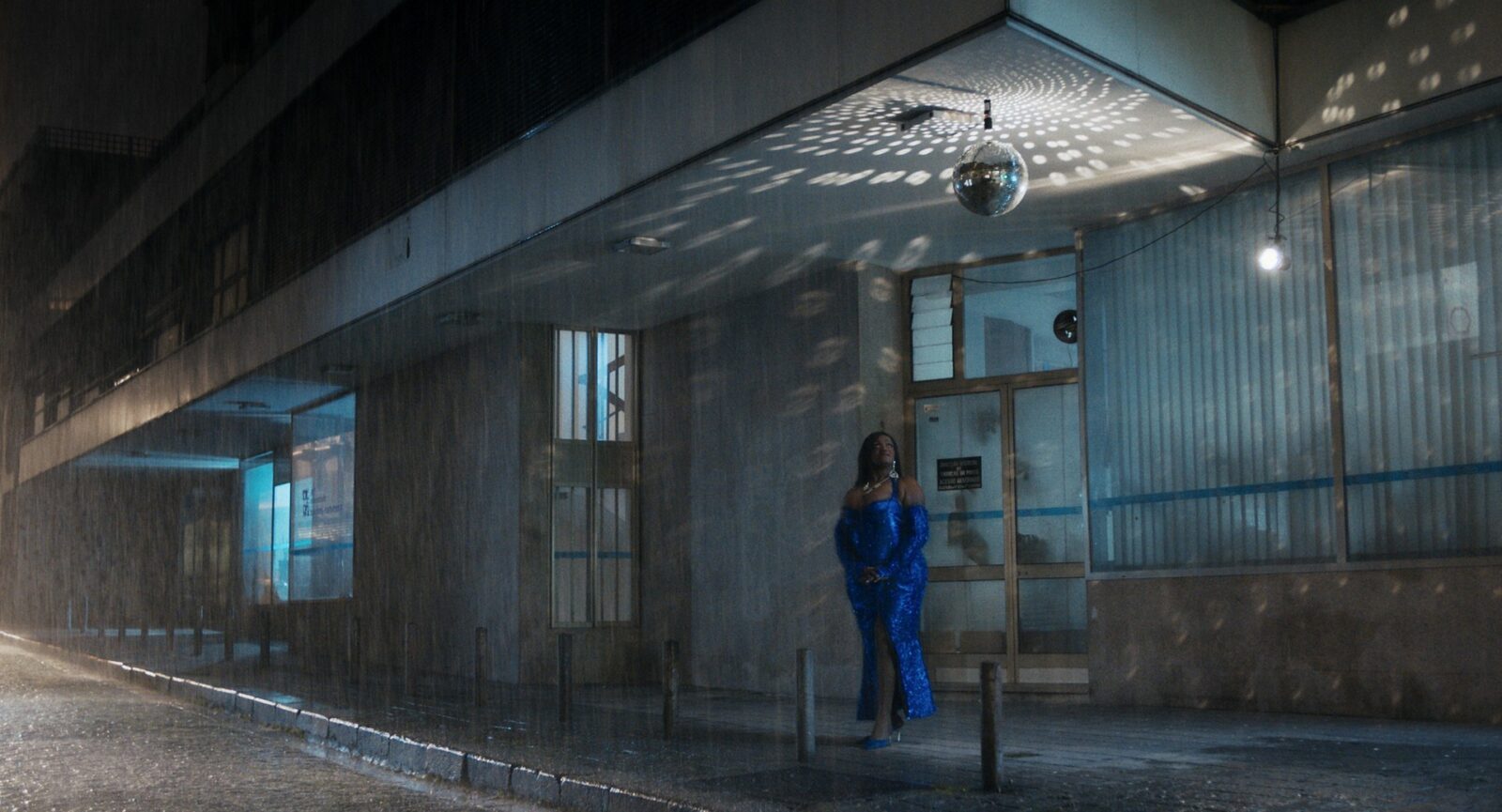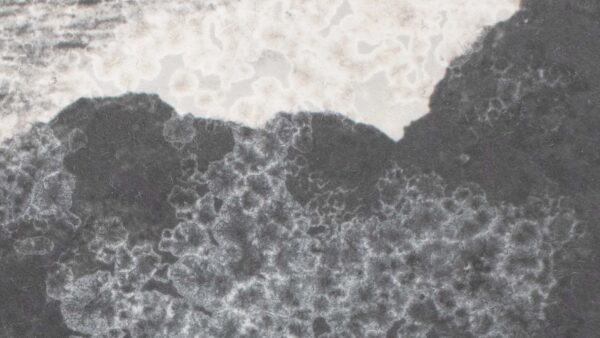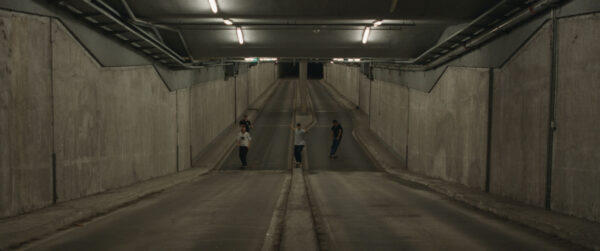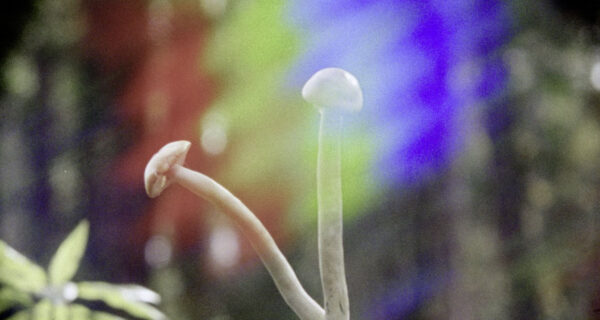“It Is Better To Light A Candle Than Curse The Darkness”
A Present Light
Portuguese filmmaker Diogo Costa Amarante’s follow-up to his Golden Bear-winning 2016 short Small Town with a more straightforward celebration of the power of friendship.

An unremarkable city street and an equally unremarkable lobby for a block of flats. The pouring rain and slate greys of backstreet concrete remind us of the drab monotony of everyday life. But there stands Diana, a beacon of magnificence in the fog of urban malaise. Her imposing and ample figure is accentuated by a tight-fitting sparkly dress, with a disco ball—incongruously placed outside—casting its light upon her. It’s a surreal and dreamlike tableau, with Diana so at odds with the surroundings of modern drab living. But it’s also joyful and striking, a reminder that the remarkable can always be around the corner and surprise us no matter where we are.
A Present Light is Portuguese filmmaker Diogo Costa Amarante’s follow-up to his Golden Bear-winning 2016 short Small Town. While it is perhaps narratively more straightforward than his previous film, A Present Light still delights in presenting strange and off-kilter moments within a story that is a paean to blossoming friendship and the color that it can often add to lives that seem shrouded in darkness.
Gonçalo leaves home to deliver a letter to the person he feels abandoned by. As he drives his motorcycle through the rain-sodden streets, Diana—standing on her corner with the disco light in full effect—warns him to watch out for the wet road. Her warning comes too late, and Gonçalo is involved in an accident. After he’s carted off to the hospital, Diana comes to his aid: lugging his cycle up numerous flights of stairs so it’s safe or bringing him new clothes to wear as he recovers (albeit with a few snarky comments about said clothes). As she helps him, we get glimpses into both of their lives as a bond grows between the two.
Amarante holds back on giving explicit character detail, favouring a staccato approach in which our protagonists lives are explored through a series of brief vignettes. There is always the impression that we’re missing out on certain moments (there’s never a moment shown in the film where Diana and Gonçalo introduce themselves to each other for the first time) whilst being privy to others. The film eschews any concrete character biography (Diana’s origins and her present life are never dealt with in any definitive way), allowing us to try and fill in the gaps. Yet this approach never feels unsatisfying as Amarente’s film becomes a collage of moments in which our protagonists partially reveal themselves. As Diana visits Gonçalo’s home, the camera focuses on a shot of a food-encrusted plate, an empty glass of wine, and an ashtray full of cigarette butts: the visible detritus of a sad and lonely man. Diana climbs the stairs of her flat, painting the banisters with her nail polish: a playful yet also slightly mournful act. Small, intimate moments—ones that are devoid of context seem to have a sense of the strange and the surreal—that still manage to reveal so much.
There are instants of dramatic import—Diana reading the contents of Gonçalo’s letter and (in terms of the rest of the film) is a sequence of grand operatic melodrama in which a visibly emotional Diana mimes to a seemingly enraptured audience—and add to the character notes of our protagonists. But they still remain something of a backdrop to their burgeoning friendship as we see fragments of their broken lives that are slowly being patched up by mutual understanding.
João Castro is good in the role of Gonçalo, and both protagonists have an easy platonic chemistry that fills A Present Light with an urgent emotional impetus. But it is Diana Neves Silva who is the standout here. A bold and brassy presence, her outward demeanour of confidence and bluster hides an affecting centre of empathy and vulnerability. In subsequent interviews, Amarante has revealed that the film was inspired by Silva (his real-life neighbour), and it is, in some ways, a paean to her strength and kindness. It’s also a celebration of the power of friendship and how we can come together in the most unlikely of circumstances.
“She was always amazed by how much they can stretch to reach out for the light and succeed,” says one character, commenting on his late wife’s plants, near the end of the film. Good friends and acquaintances always help us reach the light no matter how dark the place is that we find ourselves in.





There are no comments yet, be the first!